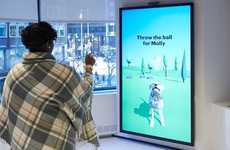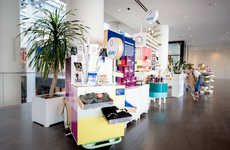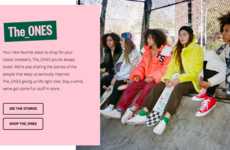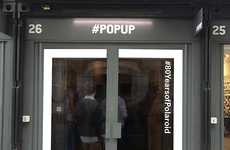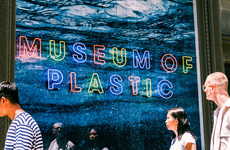



Pop-ups center around topical local issues and how to address them
Trend - Businesses across industries are using pop-ups to highlight local causes (that are also globally relevant) in order to market their personal brand, while also engaging their customers. In an age where consumers are increasingly in-tune with both regional and global issues–and willing to support those causes–brands creating pop-up spaces that do so are prioritizing the empowered and goal-driven customer.
Insight - Consumers are inevitably more aligned with causes that they're able to see themselves, as basic human empathy often stems from personal experience and social connections. Thus, they're more likely to get involved in causes that are immediately observable to them and their own community--taking a grassroots perspective that slowly fuels global initiatives.
Insight - Consumers are inevitably more aligned with causes that they're able to see themselves, as basic human empathy often stems from personal experience and social connections. Thus, they're more likely to get involved in causes that are immediately observable to them and their own community--taking a grassroots perspective that slowly fuels global initiatives.
Workshop Question - How could your brand create pop-up experiences that target regional or global issues?
Trend Themes
1. Local Cause Marketing Pop-ups - Brands are increasingly using pop-ups to highlight global and regional issues that appeal to empowered and goal-driven customers.
2. Online Business-supporting Pop-ups - Online retailers and e-commerce giants like Amazon are using pop-ups to give small online businesses the chance to showcase their products in physical retail spaces for the first time ever.
3. Pop-up Museums - Campaigns like 'Question How You Hydrate' by Lonely Whale are creating pop-up museums that raise awareness of global issues like pollution and the environment with immersive, interactive experiences.
Industry Implications
1. Retail Industry - The trend towards cause marketing pop-ups and online business-supporting pop-ups presents business professionals with an opportunity to connect with socially-conscious consumers, particularly young adults.
2. Marketing and Advertising Industry - Pop-up campaigns like the Lonely Whale Museum of Plastic are disrupting traditional marketing methods by offering immersive and interactive brand experiences that appeal to socially-conscious, younger consumers.
3. Nonprofit Industry - Collaborating with brands to create pop-up spaces that highlight social, environmental or other issues is a way for non-profits to draw attention to their causes and potentially attract new donors and volunteers.








